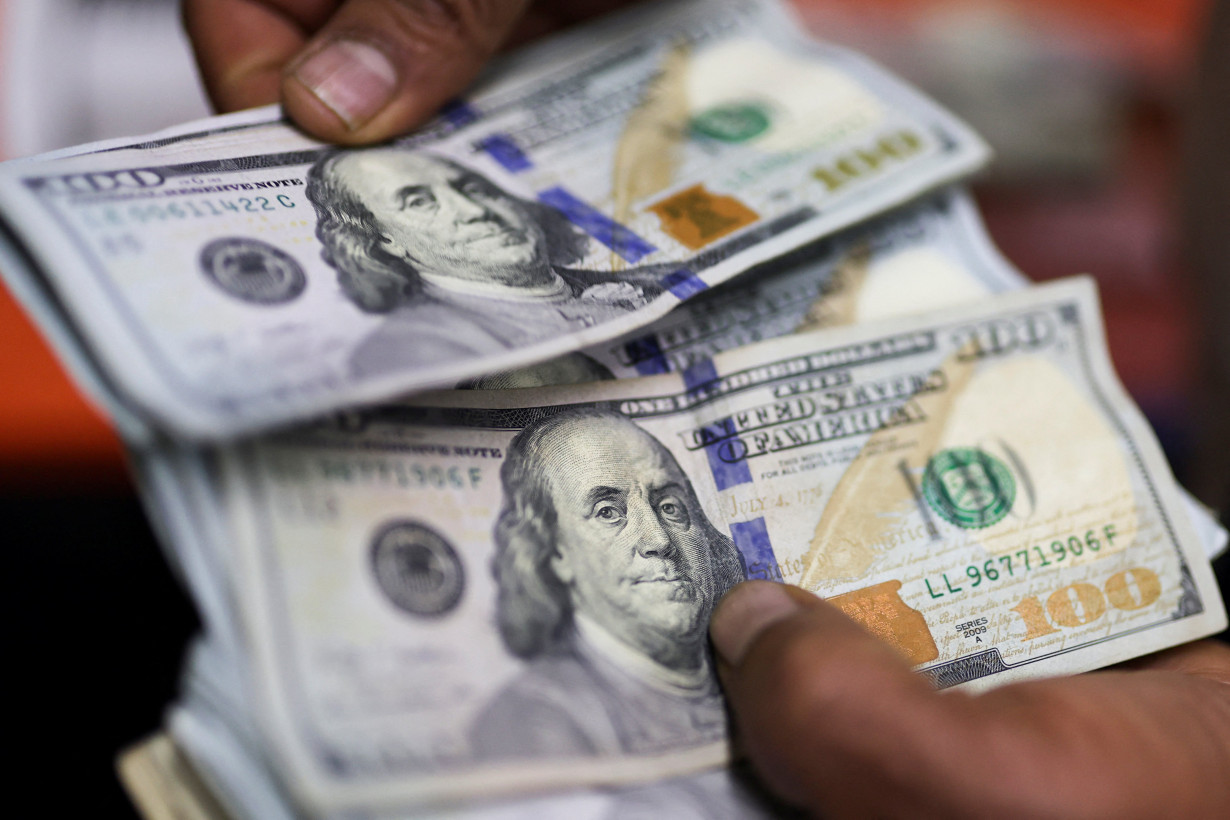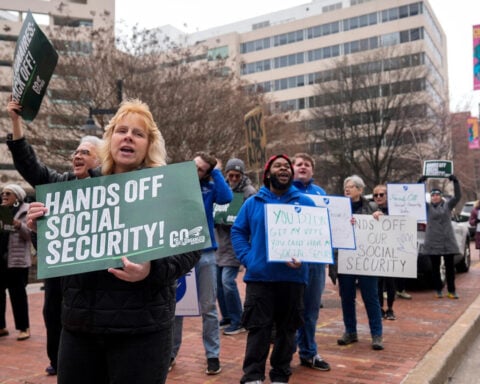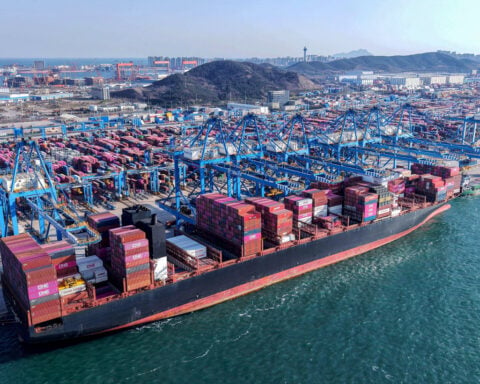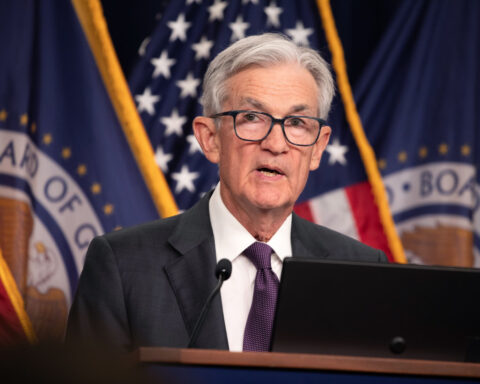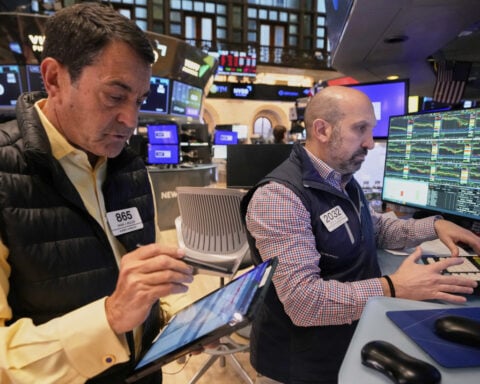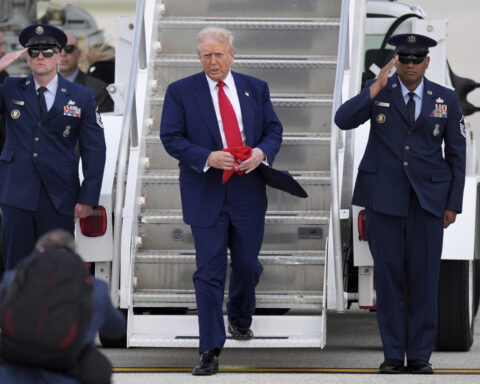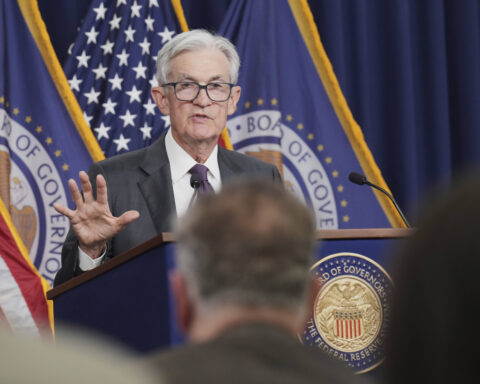(This April 1 story has been refiled to correct the spelling of commodities in paragraph 4)
By Sarupya Ganguly
BENGALURU (Reuters) - The U.S. dollar is forecast to stabilize over the coming months despite mounting worries about the economic impact of President Donald Trump’s erratic tariff announcements, according to a Reuters survey of FX strategists.
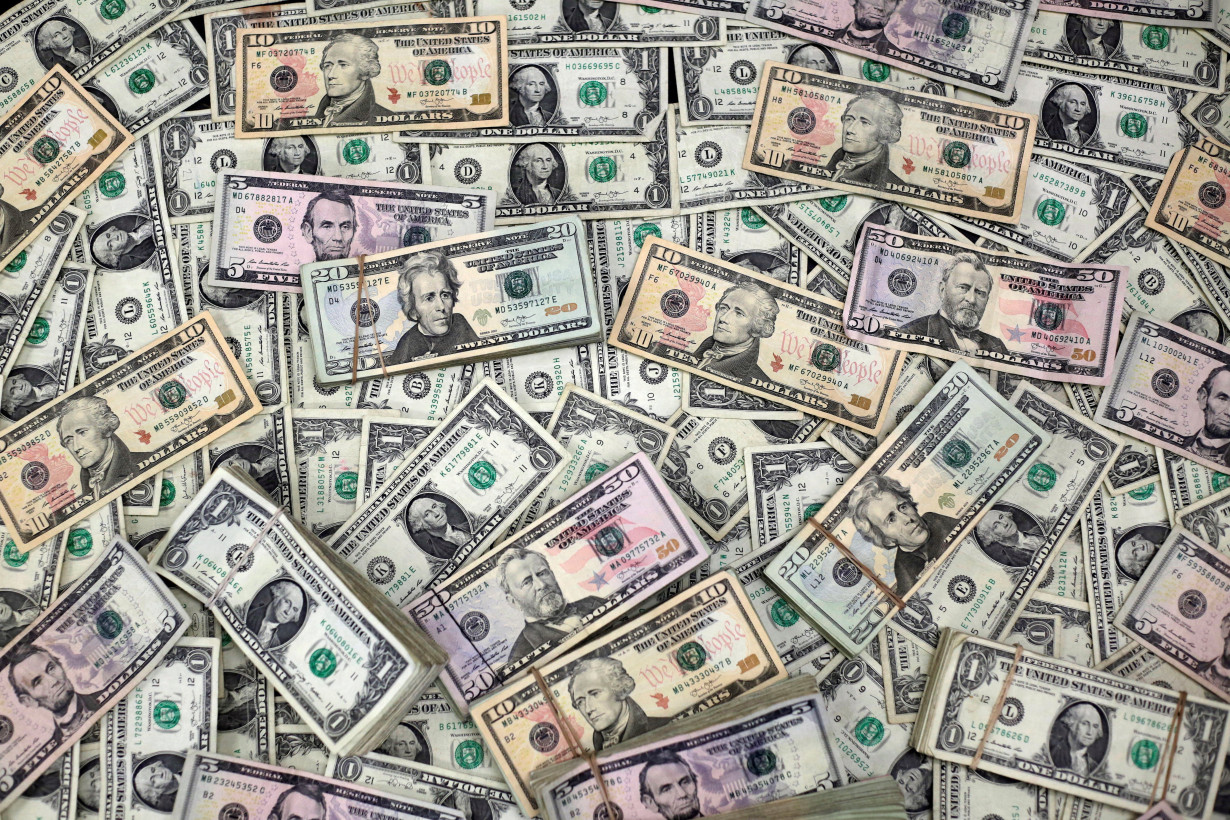
Over one-third of strategists surveyed in the past few days also expressed concern about the greenback's traditional role in currency markets as a safe haven.
Trump is set to implement tariffs on U.S. trading partners on Wednesday, which in several cases come in addition to tariffs already announced, causing widespread confusion and uncertainty, including on currency trading desks.
Traders offloaded near-decade high long bets in droves the past two months, commodities and futures trading data showed, with positioning flipping to 'net short' for the first time since October.
That was partly driven by recent speculation in markets for three more Federal Reserve rate cuts this year compared with just two previously.
Asked how positioning would change by end-April, forecasters provided no clear majority view. That was a marked shift from just two months ago when they expected speculators to keep piling on "long" dollar trades.
"There has been a certain degree of fatigue in trying to navigate U.S. tariffs and their implication for currencies these last few months. Investors don't want to get caught in the trap of pre-positioning for an outcome where it's very unclear what that outcome will actually turn out to be," said Paul Mackel, global head of FX research at HSBC.
Of 35 strategists who responded on month-end positioning in a March 27-April 1 Reuters survey, 17 said there would not be much change, nine called for an increase in net shorts while seven said it would decrease. Just two said there would be a reversal to net longs.
Medians from 69 strategists in the wider survey predicted the euro, currently around $1.08, would trade at $1.07 in three months and then $1.08 in six months. It was then predicted to rise about 2% to $1.10 in a year.
The dollar index is down about 4% this year after gaining 7% in 2024, in part on a euro surge driven by optimism Germany's infrastructure and defence spending plans would revitalise the common currency bloc's economy.
"We're very much caught in a wait-and-see mode. While many have thrown in the towel on the dollar, we still believe we don't have the true ingredients for it to be going down very meaningfully over the next six to 12 months," Mackel added.
SAFE-HAVEN STATUS SLIPPING?
But some expressed concerns Trump's isolationist policies would accelerate de-dollarisation in the longer term, on the heels of successive years of dollar outperformance, along with U.S. assets.
Just under 40% of strategists who answered an extra question, 19 of 51, said they were concerned about an erosion in the dollar's reputation in markets, particularly in the longer-term. The remaining 32 said they weren't worried.
“There are some tentative risks that the dollar’s safe haven status may be eroding,” said George Saravelos, global head of FX research at Deutsche Bank.
“First, a weakening U.S. outlook reduces the attractiveness of the dollar as a risk-off hedge. Second, a broader challenge to the stability of U.S. institutions and global internal rule of law norms may decrease foreign investor willingness to allocate to dollars at the margin.”
Even some of those who said they weren't concerned said there could be gradual slippage.
"History teaches us that network effects make it extremely difficult to dislodge reserve currency status in the short-term, but a slower process of erosion can continue for a long time before such a binary shift in the global monetary architecture happens," said Arindam Sandilya, JP Morgan's co-head of global FX strategy and head of macro strategy for Asia.
"(It is) more likely we see a continuation of the trends that have been in place for the past two decades – a steady decline in the U.S. dollar's allocation in central bank reserve holdings, and a search for alternative reserve assets such as gold."
(Reporting by Sarupya Ganguly; Polling by Mumal Rathore and Anant Chandak; Editing by Ross Finley, Chizu Nomiyama and Aurora Ellis)

 Trump has begun another trade war. Here's a timeline of how we got here
Trump has begun another trade war. Here's a timeline of how we got here
 Canada's leader laments lost friendship with US in town that sheltered stranded Americans after 9/11
Canada's leader laments lost friendship with US in town that sheltered stranded Americans after 9/11
 Chinese EV giant BYD's fourth-quarter profit leaps 73%
Chinese EV giant BYD's fourth-quarter profit leaps 73%
 You're an American in another land? Prepare to talk about the why and how of Trump 2.0
You're an American in another land? Prepare to talk about the why and how of Trump 2.0
 Chalk talk: Star power, top teams and No. 5 seeds headline the women's March Madness Sweet 16
Chalk talk: Star power, top teams and No. 5 seeds headline the women's March Madness Sweet 16
 Purdue returns to Sweet 16 with 76-62 win over McNeese in March Madness
Purdue returns to Sweet 16 with 76-62 win over McNeese in March Madness
